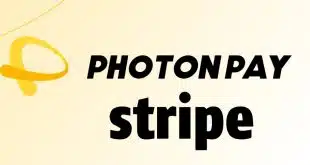Digital wallet? Try explaining that concept to your grandmother. New research from comScore Inc. says that very few consumers understand what a digital wallet is and even fewer have used one, the notable exception being PayPal Inc.
The November study by the Internet data-measurement firm found that only 51% of Americans are aware of digital wallets other than PayPal’s. Beyond that, consumers start getting confused about what wallets are and whose wallet can do what, other than that they’re supposed to facilitate mobile payments and maybe earn users some rewards.
“There’s so many differences out there that it becomes a little confusing,” Andrea Jacob, payments practice leader at comScore, tells Digital Transactions News.
Some of the wallets, such as the phone-company-backed Isis, are available only in a few test cities, notes Jacob. And those based on near-field communication technology, including Isis and Google Inc.’s Google Wallet, are accepted at comparatively few merchants and usable only on a limited number of smart phones so far. Add to that the fact that, apart from the vague notion that a digital wallet is the electronic equivalent of the cash and credit and debit cards in one’s wallet that can be accessed through a smart phone, there’s no standard definition of a digital wallet.
“It’s something that’s going to be difficult for a user to grasp on to when there’s not a unified voice in the market,” Jacob says. “I think that relative to other sorts of ideas that marketers are challenged to communicate in a [brief] TV commercial, I think a digital wallet falls on the relatively complex end of the spectrum.”
Knowing that digital wallets do not loom large in the minds of consumers, Reston, Va.-based comScore used survey methodology to reduce the awareness gap, Jacob says. The company typically draws on its opt-in panel of 1 million U.S. online consumers for its research. For the November study, comScore picked a representative sample of 2,823 adults with smart phones and asked them about a specific digital wallet: PayPal, Google Wallet, Isis, MasterCard Inc.’s PayPass wallet, Visa Inc.’s V.me, Square Inc., SCVNGR Inc.’s LevelUp, and Lemon Inc.’s Lemon wallet. Each respondent was asked to review the Web site of a provider and become familiar with its product and how it works, and then answer about 30 questions.
A separate but similar sample of 2,304 adults with smart phones was given general information about digital wallets, but nothing specific about any brand. Then they answered about 35 questions about their perceptions and hypothetical digital-wallet preferences.
Among the group that had reviewed individual wallets, 72% of respondents were aware of PayPal and 48% had used it. That was no surprise to comScore since the PayPal brand has been around since 1998 (though its digital wallet is much newer) and has benefited from exposure to the huge customer base of its parent company, eBay Inc., Jacob notes. EBay recently reported that PayPal processed nearly $14 billion in mobile-payments volume in 2012, $4 billion more than it had expected and up from $4 billion in 2011.
After PayPal, awareness and usage of mobile wallets dropped way off. Only 12% of consumers claimed to have used any wallet other than PayPal’s, and some used multiple wallets. No. 2 Google Wallet came in at 41% awareness and 8% usage among those who had used a digital wallet.
Next in awareness were PayPass at 13% followed by Square and V.me at 8%; Isis, 6%, and Lemon and LevelUp at 5% apiece. After Google in usage came PayPass at 3%, Square, V.me and LevelUp at 2% each, and Isis and Lemon at 1% apiece.
ComScore also said that while consumers rated security as a major concern, many were unaware of the locking features on digital wallets designed to prevent them from being used by unauthorized persons. The average respondent awareness of the feature across all brands was 57%. Lemon led with 71% and LevelUp trailed with 42%.
Awareness of locking features probably is a result of the play the brands give to security on their Web sites, according to Jacob. LevelUp and Google mentioned it on their home pages, while other providers were more concerned with simply conveying the concept of the digital wallet. “I would imagine that marketers are at work trying to determine the right balance for security,” she says.
Although awareness of digital wallets is comparatively low today, with smart-phone ownership booming and digital wallets evolving rapidly, comScore predicts that as many as one in two consumers is a prospective wallet user.



